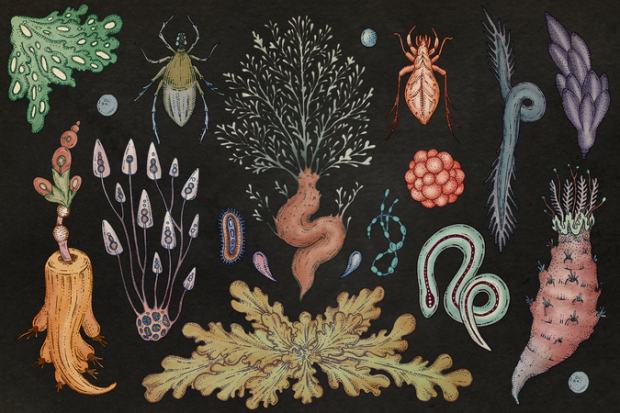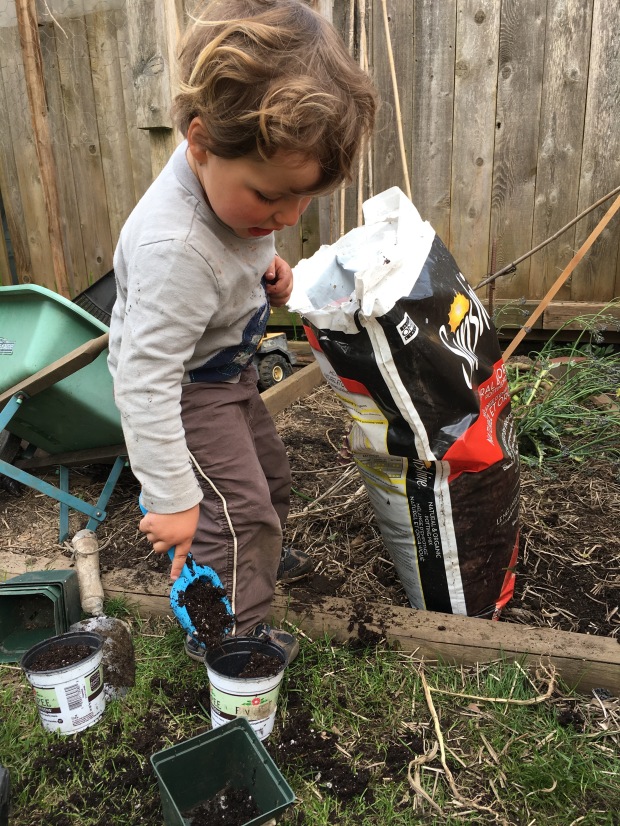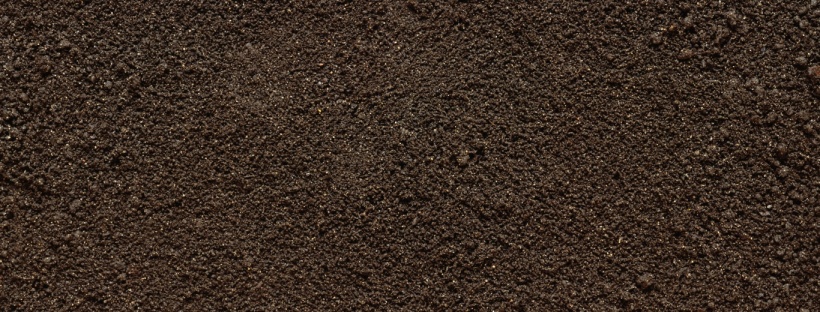If you’re feeling like this is the year to garden, you’re right. There has never been a better time to dig up a patch of lawn or fill those unused planter boxes with fresh soil.
Yes, food prices are climbing and your efforts in the garden have an increasing economic value, but something else is happening while you are out there seeding and weeding your garden plot.
In preparation for my first family-friendly garden workshop I have been thinking a lot about soil. The more I read, the more I realize that soil is where all of the magic starts. Imagine this (from The Atlantic):
There can be 10,000 to 50,000 species in less than a teaspoon of soil. In that same teaspoon of soil, there are more microbes than there are people on the earth. In a handful of healthy soil, there is more biodiversity in just the bacterial community than you will find in all the animals of the Amazon basin.
Seriously. More biodiversity than in the animals of the Amazon! But this biodiversity is not just for looks, it has a function.

Thanks to research like the five-year, National Institutes of Health’s Human Microbiome Project we now know that our health is inextricably linked to the health of microbes in our gut, mouth, nasal passages, and other “habitats” in and on us. We are not just our bodies, we are a residence for microbes with whom we have coevolved, who perform critical functions and provide services to us, and who outnumber our own human cells ten to one.
As above, so below.
A healthy human is an ecosystem of microbes, and so is healthy soil. Industrial agriculture has depleted soil microbes through heavy tilling, chemical fertilizers, pesticides and not adding organic matter–microbe food. Antibiotics and highly processed foods similarly destroy microbes in our gut.
Seeking out foods that reverse these trends–as in organic and unprocessed–is an obvious step in the right direction for restoring microbe diversity in our own inner ecosystem as well as the ecosystems around us. But don’t underestimate the importance of your own garden efforts.

Digging in healthy soil yourself means you will be exposed to soil microbes and recent research has shown they can improve mood, boost immunity and reduce vulnerability to depression.
Previous studies have linked early childhood exposure to bacteria to protection against allergies and asthma in adulthood. The new finding take this idea, called the “hygiene hypothesis,” a step further, and suggests bacteria-exposure not only boosts our immune systems, but alters our vulnerability to conditions such as depression as well.
The secret is in the soil my friends! Here’s how to boost soil health to maximize your microbes:
- Protect your soil from hard rains & winter weather by mulching or cover cropping
- Practice no-till agriculture, you do not need to dig or plow your beds yearly
- Avoid synthetic chemicals which kill microbes
- Add compost, especially worm compost, to give microbes plenty of food to thrive on
While you’re out there hauling compost or building new beds in this fine spring weather don’t be afraid to breathe deep. Rejoice in getting dirt under your fingernails, for city-dwellers soil is something like a long lost friend.
Happy spring!
